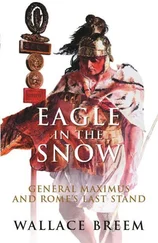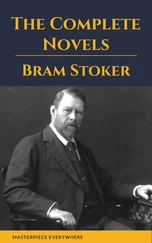I smiled. “He takes a keen interest in trade.”
“Oh yes, and in land too. He has made money, that young man. And invested it wisely, too. A modest villa for his family, so I understand. Not that I have seen it, of course.”
“Of course not.”
“Everyone wants land. They think it means security. Perhaps it did once.” He paused and took another sip of his wine. “Of course, things are very different now—difficult too. My peasants, as is customary, pay a tenth of their crop but they are lazy and I find it difficult in getting my rents from them. They don’t work as hard as they used to. They run away when they cannot pay and it is hard to find others to work the land in their place. Food is scarce too.” He nibbled a grape. “We used to get grain from Britannia, but the deliveries are now so uncertain. In season, of course, we get roast swan and wild duck. That is something.”
“You had harder times when you held office in the city.”
His pale eyes brightened. “The central government was strong then. We had a Valentinian and not a Honorius. It was dreadful for a time, but we drove them back and prosperity slowly returned.”
“It could again.”
“These Franks aren’t bad fellows. It was the best thing that foreigner, Stilicho, ever did, to settle them on this side of the river. With all the slaves running away we need young men to work on the farms.”
“Do they?”
He did not answer me. He said, “And is that what you want? Men for your army?”
“Yes.”
“Well, if they won’t join, you can only conscript them.”
“Yes, I may have to do that. But I would like volunteers also. I was hoping that you might persuade—use your influence—you are much respected—the situation is dangerous.”
“Oh, they always say that. But nothing happens. A few raids, perhaps, but little harm done.”
“What happens when they raid you?”
“Oh, I give them some silver and they go away. Curious that. They have no use for gold. Just as well. I should be ruined if they had.”
I said, “We are all in very great danger. You remember that other time. Then an army, armed war bands, plundered the country. This time it will be worse. They won’t merely steal and murder and then go away. They will steal and murder—yes—and they will stay.”
“We can go to Italia,” he said. “If it is really as bad as you say. I have estates there in the south. I have cousins in Africa too. A rich land that. They tell me many people are going there now. The climate is so much better.”
“The rich,” I said.
“But naturally. The artisans and the peasants could not afford the journey.”
“I need men, desperately. I hoped that your sons—”
“My sons are middle-aged.” He smiled. “I am an old man. I have grandsons, of course.”
“They would do. They would do well. I need an example set. I want auxiliary alae with young men like your grandsons to lead them.”
“I am not sure—”
“Would you ask them?” I insisted. “Military service is honourable. Young men like adventure.”
“But not death,” he said drily.
“It is better than dishonour,” I said lightly.
He seemed to shrink inside his chair.
I said, “Would you ask them.”
He hesitated.
“Let me ask them then? I must.”
He said, “Your determination—you remind me of Theodosius—the emperor, of course.”
“Did you know him?”
“Yes. He was my friend.” He spoke with a flash of pride.
“I am glad,” I said. “You see, I knew his father.”
His hands began to tremble. He said, “I think you had better go. I am very tired.”
“You said I could see your grandsons.”
“They are not here. I remember—they are out riding. I had forgotten.”
“I can wait.”
“They may not come back for—” He broke off as voices sounded on the terrace outside and his hands dropped helplessly to his lap. There was the sound of laughter and scuffling and a dark young man entered, to be followed by a boy in his third year of the toga. They were fine boys all right. I would have been proud if they had been my sons.
They fell silent as they saw me and stood awkwardly in the doorway. They looked at my riding dress and at my helmet in the crook of my arm, and their faces wore a curious expression, compounded—I could have sworn it—of fear and hatred. I waited stiffly for Julianus Septimus to introduce me. He said nothing but I heard a gasp and the wine cup fell to the floor with a crash.
The dark boy moved forward, crying, “Grandfather.”
Instinctively he stretched out his right hand, the fingers splayed outwards, as though he would have caught the falling cup had he been in time. It was then that I noticed that his right thumb was missing. The puckered skin was pink and newly healed. It was a great shame. It was a horrible accident to have suffered. He was such a good looking boy.
He saw my look and dropped his hand sharply.
The grandfather said faintly, “It is all right. No harm has been done. Metellus can clear up the mess in a minute. I have a guest. Run along and come back when I am free.”
The boys bowed to me stiffly and turned to go. As they did so I saw the hands of the fair one quite clearly. He, too, had suffered an accident, just like his brother. I remembered the day that I had entered Treverorum and the young men I had noticed in the crowds with injured hands.
It was then that I understood.
I swung round sharply and put my hand to my mouth. I felt physically sick and the swallowed wine was sour in my throat. The skin on the backs of my hands prickled with sweat and my forehead felt cold. I knew then the shame, the horror and the degradation of it all.
I said in a whisper, “Who put them up to it? Was it you? You, the friend of my Theodosius’ son, the friend of Valentinian who laboured to rebuild this province after its years of disaster and misery.”
He did not answer. He turned his head away, but I saw from the angle of his jaw that his face trembled.
“Do you want to lie skewered in the sun like a condemned criminal while your villa roasts your servants behind your back? See your sons killed for your gold, your grandsons as slaves, serving their barbarian masters on bended knee? See your grand-daughters tremble as they are stripped naked for the pleasure of their stinking conquerors? Will you die content in the knowledge that you have brought such things about?”
He did not answer.
I said, “Your family bears a great name. You are the owner of fertile lands, rich treasures and a beautiful house. You have all that most men would welcome; nothing that they would refuse.”
“Stop it,” he cried. “How dare you?”
“Dare,” I said. “I am only a poor man. I am rich in nothing except courage and even that I must earn. Each day I have to win it afresh as a peasant sweats to earn his food. It is not easy to earn what I need that I may do what I have to do. I am only a soldier. But you—you have everything, save only one thing.” I turned my back on him and walked to the open door. “You lack only the Huns as your guests.”
I rode back to the city and all the while I shivered as though with a fever. It was as though the heat had gone out of the sun and the golden brightness of the day was but an illusion.
Outside Romulus a sweating horse stood tethered in the courtyard between the double gates, and a messenger awaited me in my room with a sealed scroll, penned two days before at Moguntiacum. Quintus’ eyebrows were raised, framing an unspoken question.
“The family of Septimus have joined the thumbless ones,” I said.
He said scornfully, “Thus avoiding military service like all the others. You should fine them as Augustus did.”
Читать дальше












